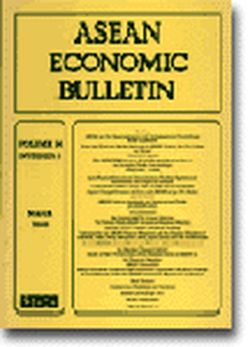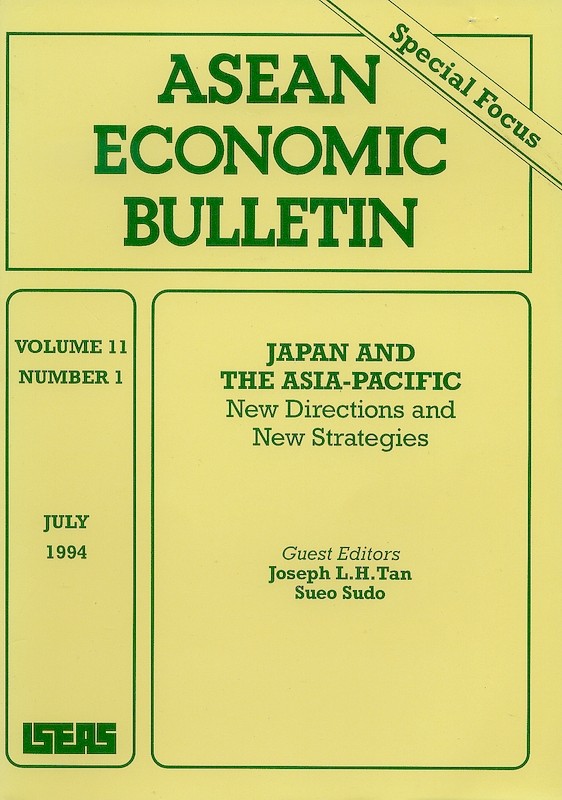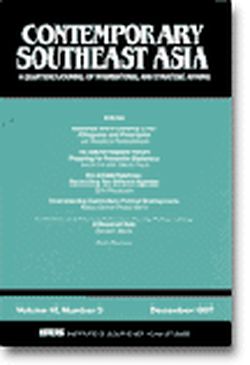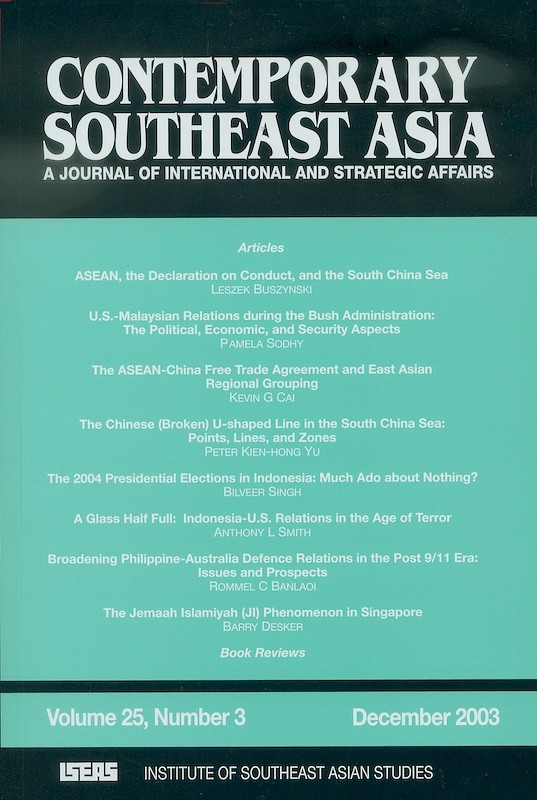Contemporary Southeast Asia: A Journal of International and Strategic Affairs Vol. 11/1 (June 1989)
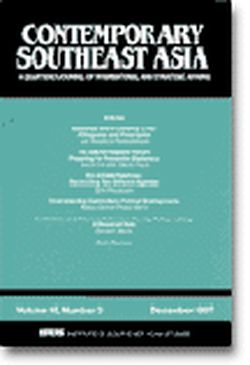
Date of publication:
June 1989
Number of pages:
114
Code:
CS11/1
Contents
-
Preliminary pages
- ARTICLES
-
U.S.-ASEAN Security Relations: Challenges and Prospects, by Muthiah Alagappa, author see abstractHaving gone through at least three distinct phases between 1950-70, 1971-78 and 1978-89, U.S.-ASEAN security relations have now entered into yet another phase of evolution and change that is full of challenges and variables. Of these, the Cambodian conflict, the long-standing differences in Sino-Soviet relations, the fast-changing character of Soviet-American competition, the continuing role of the U.S. market as the engine of growth for the export-oriented ASEAN economies and America's leadership of the free-enterprise system in the Pacific are all vital in determining the nature of future U.S.-ASEAN security relations. This paper seeks to explore several of these developments and is concerned in particular with the increasing likelihood of friction in U.S.-ASEAN economic relations. Its main conclusion is that a much higher level of consultation and sensitivity to the interests, concerns and limitations of all parties must characterize U.S.-ASEAN relations to minimize tension and promote peace, security and prosperity in the region in the context of a changing geostrategic and geo-economic environment.
-
Burma's National Security and Defence Posture, by Tin Maung Maung Than, author see abstractChallenges to Burma's security posed by armed separatist and communist insurgencies since independence in 1948 are examined in relation to the responses and initiatives taken by the tatmadaw (Burmese armed forces). It seems that threat perceptions in the context of such challenges and Burma's strict neutrality in international relations, together with budgetary constraints, have shaped the national defence posture. This is reflected in the objectives, means and resources of the tatmadaw which is overwhelmingly oriented towards internal security concerns.
-
The Malaysian-Philippine Maritime Dispute, by Lee Yong Leng, author see abstractThe poor knowledge of the maritime boundaries of the Sabah-Sulu maritime region is related to the unusual set of treaties delimiting the Philippines which are rather unique but confusing at the same time. This confusion is further compounded by the presence of a myriad of islands, islets and reefs in the Sabah-Sulu maritime zone where maritime boundaries have not been strictly administered in the past. The colonial treaties also clash with the provisions of the more recent 1982 Convention on the Law of the Sea. If this is not an easy task for both parties to sort out then the problem in the Spratlys will be an even more difficult one because it is not confined to Malaysia and the Philippines. Apart from these two countries, China, Taiwan and Vietnam have also made claims over the Spratlys. Although maritime boundaries have been drawn by some parties in the Spratlys it is not so much a matter of delimiting the boundaries but more about claims by the contending parties over the Spratly archipelago.
-
Will U.S. Political and Military Policy towards the South and Mid-Pacific Change in the Bush Administration?, by John A Cutler, author see abstractWith President Bush in office less than a year, few expect dramatic changes in U.S. foreign policy in the mid- and South Pacific. The thesis of this paper, however, is that the American position in these areas is more fluid than concrete and that future gains in U.S. policy initiatives will only come with much work and compromise. The changes in foreign policy proposed in this paper recognize the need to cultivate a looser coalition of like-minded friends or groupings of interests, rather than seek to retain a secure set of allies. If this is not done, American leadership will cease to be forward-looking; instead it will become merely reactive, with events occurring, beyond U.S. control and with policies mostly shaped by others
- BOOK REVIEWS
-
BOOK REVIEW: Socialist Vietnam's Economy, 1975-85: An Assessment by Vo Nhan Tri
-
BOOK REVIEW: Brother Enemy: The War After the War, A History of Indochina Since the Fall of Saigon by Nayan Chanda
-
BOOK REVIEW: ASEAN and China: An Evolving Relationship edited by Joyce K Kallgren, Noordin Sopiee and Soedjati Djiwandono, by James T H Tang, author
- DOCUMENTATION
-
DOCUMENTATION: Consensus Statement of the Chairman of the Jakarta Informal Meeting
-
DOCUMENTATION: Extracts from a Statement by the Singapore Minister of Foreign Affairs at the Jakarta Informal Meeting, 19 February 1989

